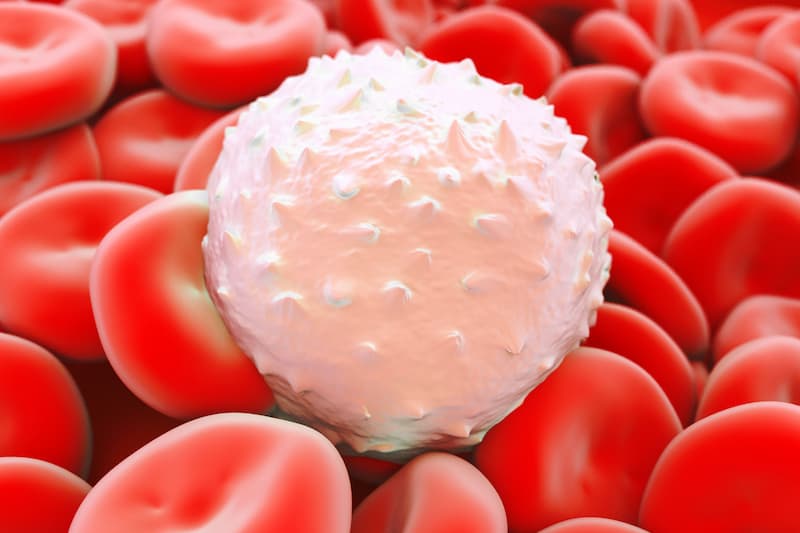Salvage Isatuximab Combo Elicits Efficacy in Lenalidomide-Relapsed Myeloma
Extramedullary disease was the only factor that correlated with worse progression-free survival per multivariate analysis.
"[O]ur analysis supports the clinical efficacy and safety of IsaKd as a first-salvage therapy in a specific, and still existing, subset of [patients with multiple myeloma] who relapse during lenalidomide maintenance following autologous stem cell transplantation," according to the study authors.

Combining isatuximab-irfc (Sarclisa) with carfilzomib (Kyprolis) and dexamethasone (IsaKd) demonstrated efficacy and safety as a first-salvage therapeutic option among patients with multiple myeloma who have relapsed on lenalidomide (Revlimid), according to findings from the real-world AENEID study published in Pharmaceuticals.1
With a median follow-up of 12.9 months, IsaKd produced a median progression-free survival (PFS) of 24.4 months (95% CI, 15.27-not available [NA]), with a 1-year PFS probability of 65.76%. Based on multivariate analysis, extramedullary disease (EMD) was the only relevant factor that correlated with worse PFS outcomes (HR, 0.24; 95% CI, 0.11-0.53; P = .00013). Data showed that the median overall survival (OS) was not reached (95% CI, NA-NA), with a 1-year OS probability rate of 85.12%.
After a median of 3 treatment cycles (range, 1-11), the objective response rate (ORR) was 79.3%. Additionally, 3.6% of patients experienced a stringent complete response (sCR), while 29.3% had a CR. Very good partial responses (VGPRs) and PRs were noted in 23.2% of patients each.
“The current study has several limitations, mainly because of its retrospective, real-life design, the absence of a control group, a relatively short follow-up period, and the lack of measurable residual disease [MRD] data, which is an emerging issue also in [relapsed/refractory multiple myeloma],” lead study author Nicola Sgherza, from the Hematology and Stem Cell Transplantation Unit at AOUC Policlinico in Bari, Italy, wrote with coauthors.1 “Nevertheless, our analysis supports the clinical efficacy and safety of IsaKd as a first-salvage therapy in a specific, and still existing, subset of [patients with multiple myeloma] who relapse during lenalidomide maintenance following autologous stem cell transplantation [ASCT]. This category, which has not been extensively investigated, remains ineligible for more effective therapies, such as CAR [T-cell therapy] and bispecific antibodies.”
According to the study authors, IsaKd had previously demonstrated “promising results” vs Kd alone among patients with relapsed/refractory multiple myeloma in the phase 3 IKEMA trial (NCT03275285).2 The investigators noted, however, that the trial only included 8 patients who relapsed on frontline lenalidomide and that the median PFS for this subgroup could not be determined. As a result, investigators aimed to assess the safety and efficacy of IsaKd in this specific patient subset.
Study treatment included isatuximab at 10 mg/kg intravenously on days 1, 8, 15, and 22 of the first 28-day cycle followed by days 1 and 15 of each subsequent cycle. Additionally, patients received carfilzomib at 20 mg/m2 intravenously on days 1 and 2 of the first cycle followed by 56 mg/m2 on days 8, 9, 15, and 16 of cycle 1 then days 1, 2, 8, 9, 15, and 16 of each subsequent cycle plus dexamethasone at 20 mg on days 1, 2, 8, 9, 15, 16, 22, and 23.
The study’s primary end points were ORR, PFS, OS, time to next treatment (TTNT), and safety. Investigators enrolled a total of 82 patients who received at least 1 cycle of IsaKd from April 2022 to September 2024 across 19 Italian hematology centers.
The median patient age was 62 years (range, 43-73), and most were male (51.2%). Most of the patients had IgG M-protein type (57.3%), Kappa light chain type (53.7%), elevated dehydrogenase levels (72%), International Staging System I disease (46.3%), and a clinical relapse (81.7%). Of note, 86.6% of patients received induction therapy with bortezomib (Velcade) plus thalidomide and dexamethasone before ASCT, and 53.7% received single ASCT.
The median TTNT was 26.3 months (95% CI, 17.2-NA), and 67.9% required retreatment at 1 year. Of those who received subsequent therapy, patients were most likely to require retreatment with elotuzumab (Empliciti) plus pomalidomide (Pomalyst) and dexamethasone (57.9%).
Overall, 10.9% of patients experienced infusion-related reactions; all events were grade 1/2 and promptly resolved without any instances of treatment discontinuation. Grade 3/4 hematologic toxicities included thrombocytopenia (30.5%), lymphocytopenia (19.5%), neutropenia (17.1%), and anemia (10.9%).
Grade 1/2 hypertension as well as pneumonia and upper airway infections of any grade occurred in 13.4% of patients each. Investigators discontinued study therapy for 4.9% of patients due to infectious complications. Some lower-grade toxicities may have been underreported due to the study’s retrospective design.
References
- Sgherza N, Battisti O, Curci P, et al. Efficacy and safety of isatuximab, carfilzomib, and dexamethasone (IsaKd) in multiple myeloma patients at the first relapse after autologous stem cell transplantation and lenalidomide maintenance: results from the multicenter, real-life AENEID study. Pharmaceuticals (Basel). 2025;18(4):595. doi:10.3390/ph18040595
- Martin T, Dimopoulos MA, Mikhael J, et al. Correction: isatuximab, carfilzomib, and dexamethasone in patients with relapsed multiple myeloma: updated results from IKEMA, a randomized phase 3 study. Blood Cancer J. 2023;13(1):152. doi: 10.1038/s41408-023-00923-6.
Navigating AE Management for Cellular Therapy Across Hematologic Cancers
A panel of clinical pharmacists discussed strategies for mitigating toxicities across different multiple myeloma, lymphoma, and leukemia populations.